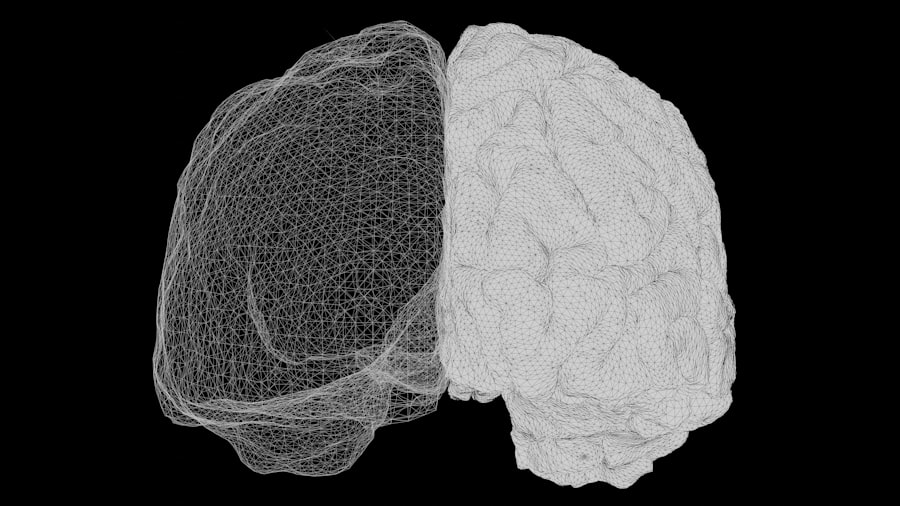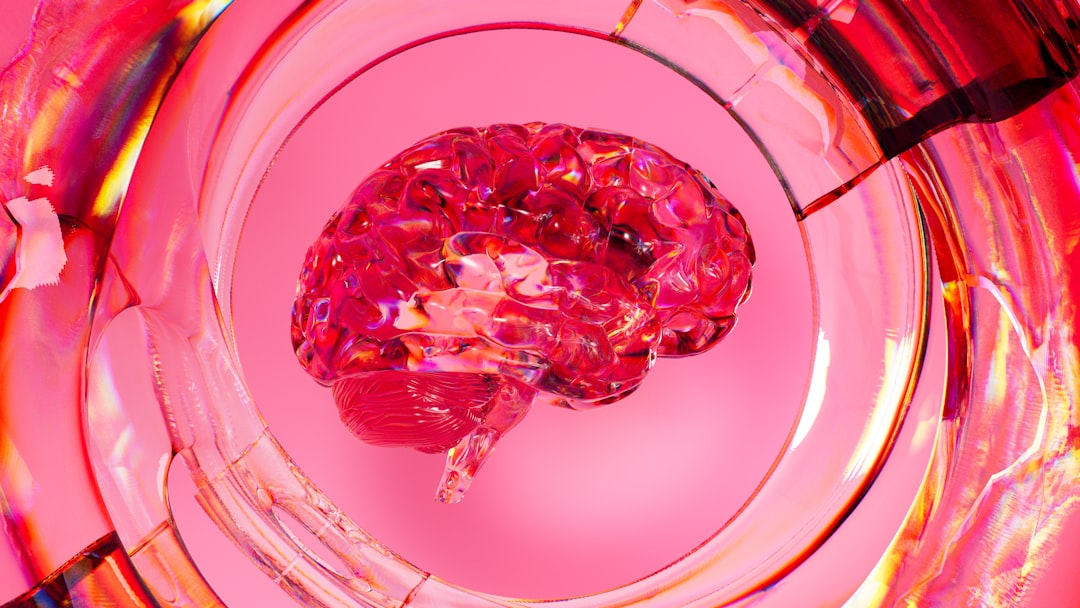As you journey through life, the aging process inevitably affects every aspect of your body, including your brain. Brain aging is a complex phenomenon characterized by gradual changes in cognitive function, memory, and overall mental acuity. While aging is a natural part of life, the rate at which your brain ages can be influenced by various factors, including genetics, lifestyle choices, and, notably, diet.
Understanding how these elements interact can empower you to make informed decisions that may help preserve your cognitive health as you age. The brain is a remarkable organ, capable of adapting and reorganizing itself throughout your life. However, as you grow older, certain changes can lead to a decline in cognitive abilities.
This decline can manifest as memory loss, slower processing speeds, and difficulties in learning new information. By recognizing the role that nutrition plays in brain health, you can take proactive steps to mitigate the effects of aging on your cognitive functions. A well-balanced diet rich in essential nutrients can support brain health and potentially slow down the aging process.
Key Takeaways
- Brain aging is a natural process that can be influenced by diet and lifestyle choices.
- A diet rich in fruits, vegetables, and whole grains can support brain health and reduce the risk of cognitive decline.
- Processed foods high in sugar and unhealthy fats can accelerate brain aging and impair cognitive function.
- Consuming high levels of sugary foods can lead to inflammation and oxidative stress in the brain, contributing to cognitive decline.
- Trans fats found in many processed and fried foods can have a detrimental effect on brain aging and cognitive function.
The Impact of Diet on Brain Health
Your diet is one of the most significant factors influencing your brain’s health and longevity. The foods you consume provide the necessary nutrients that fuel your brain’s functions and protect it from damage. A diet rich in antioxidants, healthy fats, vitamins, and minerals can enhance cognitive performance and reduce the risk of neurodegenerative diseases.
Conversely, poor dietary choices can lead to inflammation and oxidative stress, which are detrimental to brain health. Research has shown that certain dietary patterns, such as the Mediterranean diet, are associated with better cognitive function and a lower risk of dementia. This diet emphasizes whole foods like fruits, vegetables, whole grains, fish, nuts, and healthy fats while minimizing processed foods and sugars.
By adopting a nutrient-dense diet, you can create an environment that supports optimal brain function and resilience against age-related decline.
Processed Foods and Brain Aging

Processed foods have become a staple in many diets due to their convenience and availability. However, these foods often contain high levels of unhealthy fats, sugars, and additives that can negatively impact your brain health. Regular consumption of processed foods has been linked to increased inflammation and oxidative stress in the body, both of which can accelerate brain aging.
When you choose convenience over nutrition, you may inadvertently contribute to cognitive decline. Moreover, processed foods often lack essential nutrients that are vital for maintaining cognitive function. They tend to be low in vitamins and minerals that support brain health, such as omega-3 fatty acids, B vitamins, and antioxidants.
By reducing your intake of processed foods and opting for whole, nutrient-rich alternatives, you can provide your brain with the nourishment it needs to thrive as you age.
Sugary Foods and Brain Health
| Study | Findings |
|---|---|
| Harvard Health Study | High sugar intake may impair cognitive function and increase the risk of developing mental health disorders. |
| University of California Study | Consuming too much sugar may reduce the production of a brain chemical called brain-derived neurotrophic factor (BDNF), which is important for learning and memory. |
| British Journal of Nutrition | High sugar consumption has been linked to a higher risk of developing depression and anxiety. |
Sugar is another dietary component that can have a profound impact on your brain health. High sugar consumption has been linked to various negative outcomes, including impaired memory and learning abilities. When you consume excessive amounts of sugar, it can lead to insulin resistance and inflammation, both of which are detrimental to cognitive function.
Over time, a diet high in sugar may increase your risk of developing neurodegenerative diseases such as Alzheimer’s. Additionally, sugary foods often lead to spikes and crashes in blood sugar levels, which can affect your mood and energy levels. These fluctuations can make it difficult for you to concentrate and maintain focus throughout the day.
By reducing your intake of sugary foods and opting for natural sources of sweetness like fruits, you can help stabilize your blood sugar levels and support better cognitive function.
Trans Fats and their Effect on Brain Aging
Trans fats are artificial fats created through hydrogenation, a process that solidifies liquid oils. These fats are commonly found in many processed foods and have been linked to numerous health issues, including heart disease and inflammation. When it comes to brain health, trans fats can have particularly harmful effects.
Research suggests that a diet high in trans fats may contribute to cognitive decline and increase the risk of developing Alzheimer’s disease. Trans fats can disrupt the balance of essential fatty acids in your body, leading to inflammation in the brain.
To protect your brain from the adverse effects of trans fats, it’s crucial to read food labels carefully and avoid products containing partially hydrogenated oils. By prioritizing healthy fats from sources like avocados, nuts, and olive oil, you can support your brain’s health as you age.
High-Sodium Foods and Brain Function

High-sodium foods are prevalent in many diets today, primarily due to the consumption of processed and fast foods. While sodium is an essential mineral necessary for various bodily functions, excessive intake can lead to negative health outcomes. High sodium levels have been associated with hypertension (high blood pressure), which can adversely affect brain health over time.
Chronic hypertension is a significant risk factor for cognitive decline and stroke. Moreover, a diet high in sodium may contribute to inflammation in the body, further exacerbating the aging process in the brain. To promote better brain health, consider reducing your sodium intake by cooking at home with fresh ingredients and using herbs and spices for flavor instead of salt.
By making these adjustments to your diet, you can help protect your brain from the harmful effects of excessive sodium consumption.
Alcohol and its Impact on Brain Aging
Alcohol consumption is another factor that can significantly influence brain aging. While moderate alcohol consumption may have some protective effects on heart health, excessive drinking can lead to detrimental consequences for your cognitive function. Chronic alcohol abuse has been linked to memory loss, impaired judgment, and an increased risk of developing neurodegenerative diseases.
Alcohol can also disrupt the balance of neurotransmitters in your brain, leading to mood swings and cognitive impairments. If you choose to consume alcohol, moderation is key. Limiting your intake to recommended guidelines can help mitigate the risks associated with alcohol while still allowing you to enjoy social occasions without compromising your brain health.
Caffeine and its Role in Brain Health
Caffeine is a widely consumed stimulant found in coffee, tea, and various energy drinks. While excessive caffeine intake can lead to negative side effects such as anxiety or insomnia, moderate consumption has been associated with several cognitive benefits. Research suggests that caffeine may enhance alertness, improve mood, and even protect against neurodegenerative diseases like Alzheimer’s.
Caffeine works by blocking adenosine receptors in the brain, which helps increase dopamine levels and improve overall cognitive function. Additionally, studies have shown that regular coffee drinkers may experience a lower risk of developing dementia compared to non-drinkers. If you’re a coffee or tea lover, enjoying these beverages in moderation may provide you with cognitive benefits while also contributing positively to your overall well-being.
Red Meat and Brain Aging
Red meat has long been a staple in many diets; however, its consumption has come under scrutiny regarding its impact on health. Some studies suggest that high consumption of red meat may be linked to an increased risk of cognitive decline and neurodegenerative diseases. This association may be due to the presence of saturated fats and certain compounds found in red meat that can promote inflammation.
To support optimal brain health as you age, consider moderating your intake of red meat while incorporating lean protein sources such as fish, poultry, legumes, and plant-based proteins into your diet. These alternatives not only provide essential nutrients but also offer anti-inflammatory properties that can benefit your cognitive function over time.
Artificial Sweeteners and Brain Function
Artificial sweeteners are often marketed as healthier alternatives to sugar; however, their long-term effects on brain health remain a topic of debate among researchers. Some studies suggest that these sweeteners may alter gut microbiota or affect insulin sensitivity, potentially leading to negative consequences for cognitive function. While they may help reduce calorie intake or manage weight for some individuals, their impact on overall brain health is still unclear.
If you’re considering using artificial sweeteners as a sugar substitute, it’s essential to stay informed about ongoing research regarding their effects on cognition. Opting for natural sweeteners or reducing overall sweetness in your diet may be a more beneficial approach for maintaining optimal brain function as you age.
Making Better Food Choices for Brain Health
In conclusion, the choices you make regarding your diet play a crucial role in determining how well your brain ages over time. By being mindful of what you eat—prioritizing whole foods rich in nutrients while minimizing processed foods—sugars, trans fats, high sodium items, alcohol consumption, red meat intake, and artificial sweeteners—you can create an environment conducive to maintaining cognitive health.
Embracing a balanced diet filled with nutrient-dense foods not only supports your brain but also enhances your quality of life as you age gracefully. By making informed decisions today about what you put on your plate, you are investing in a healthier future for your mind and body alike.
As we age, maintaining cognitive health becomes increasingly important, and diet plays a crucial role in this process. While there are specific foods that should be avoided to support an aging brain, it’s equally important to focus on a balanced diet that promotes overall well-being. For more insights into maintaining a healthy lifestyle as you age, you might find this related article on Explore Senior Health helpful. It provides a comprehensive guide on various aspects of senior health, including nutrition, exercise, and mental wellness, which are all vital for preserving cognitive function.
WATCH THIS!🧠 The Breakfast Mistake That Fuels Senior Memory Loss
FAQs
What are some foods to avoid for an aging brain?
Some foods to avoid for an aging brain include processed foods high in sugar and unhealthy fats, fried foods, and excessive alcohol.
Why should these foods be avoided for an aging brain?
These foods can contribute to inflammation, oxidative stress, and impaired cognitive function, which can negatively impact the aging brain.
How do processed foods high in sugar and unhealthy fats affect the aging brain?
Processed foods high in sugar and unhealthy fats can lead to insulin resistance, inflammation, and impaired brain function, which are all detrimental to the aging brain.
What are the effects of consuming fried foods on the aging brain?
Fried foods can contribute to inflammation and oxidative stress in the body, which can negatively impact the aging brain and cognitive function.
How does excessive alcohol consumption affect the aging brain?
Excessive alcohol consumption can lead to cognitive decline, memory problems, and an increased risk of developing neurodegenerative diseases in the aging brain.
